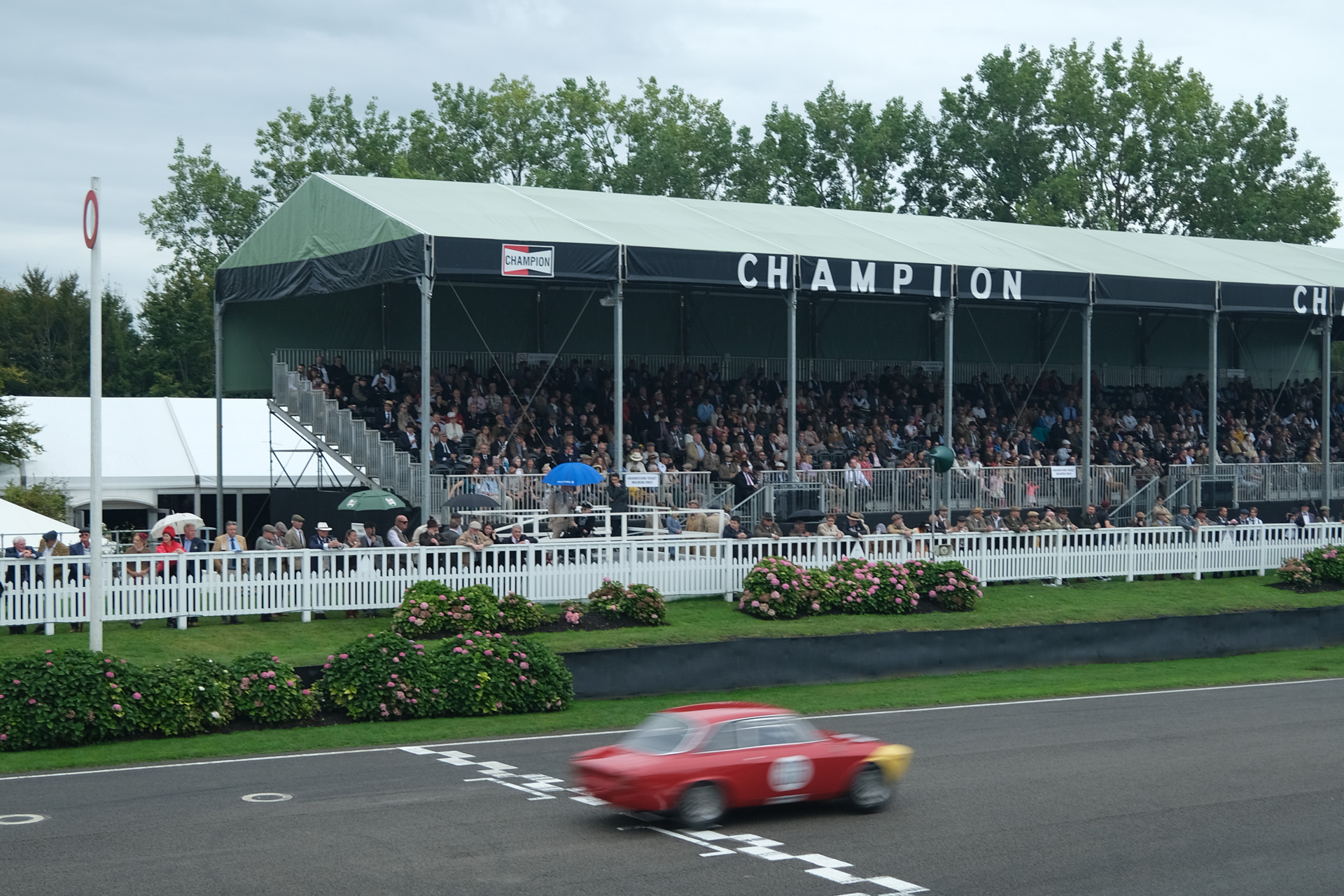
Recap: Sustainable Fuel Transforms Goodwood Revival 2024
By
1 year ago
Inside the vintage day – with a modern fix to an age-old problem
When it comes to driving, the future is green. Well, at least on the Goodwood Estate, anyway.
Inside Goodwood Revival 2024
September brings with it many things: a new fashion season; pumpkin spiced lattes; and Goodwood Revival, the storied vintage car festival that has captured the imagination of everyone from racing enthusiasts to vintage fanatics and the kings and queens of preppy Ralph Lauren style. While, at surface level it all looks fabulously the same (the hair is just as big and the dresses just as sixties outlandish), 2024 ushers in a very new and rare feat for the Revival Festival: car racing on entirely sustainable fuel.
As part of the estate’s commitment to going carbon neutral, this basically means that every single car and bike that zoomed across the Goodwood Motor Circuit this past weekend was competitively pumped with fuel that was composed of a minimum of 70 percent sustainable components.
The question on everyone’s lips is simple: why? It’s a change, Matt Hearn, Head of Event Content at Goodwood tells Country & Town House, that has been ‘rigorously researched and considered.’ As we sit outside the Pilot’s Club – rain included – he explains that competitors were given over a year to prepare for the change, get their heads around car modifications and test things out in their motors well in advance of this year’s championships.
‘The biggest challenge was always mindset over races,’ he tells me. ‘Any change that might risk performance or reliability or cost the drivers more money was always a concern in the beginning. What everyone thought was going to be really difficult wasn’t.’

© Pietro Fiallo
As to why it turned out to be such an easy switch simply came down to the passion Goodwood’s racing posse has for the sport. ‘We are lucky with historic racing in that people are doing it as a hobby and they are keen to keep using them for as long as possible and will make the necessary modifications to make it work,’ says Matt. ‘Everything we (and they) can do to sustain and keep it going is a key and integral thing for the sport.’
Like a vintage car, sustainable fuel is as artisanal as the automobiles themselves. For those out of the loop, SAFs (as the magic fuel is also known) is made up of a variety of renewable, non-petroleum-based feedstocks that leave the ozone (and our lungs) in peace. Everything from municipal solid waste from packaging to paper and food scraps can be used, alongside waste food fats like oils, greases and woody biomasses. It’s, in a phrase, positively genius.
Yet, as with the creation of anything new or remotely different from the norm, it’s all to do with supply and demand. The fuel Hearn admits is more expensive, but with a higher demand the hope is that it will drive the cost down and more people will use it. ‘Even since we announced it the price has started to come down as more and more people are using it on the racecourse.’
With the longevity of the race in mind Matt, in particular, looks to preservation as the forefront of the vintage car sustainability challenge. ‘Building a new car is way worse for the environment than using an old car. For us, the oldest cars we have racing here are from the 1920s and they are still racing now. To keep these cars running and using them for 90 years is far greener way than using a brand-new car. There’s a much smaller impact from the creation of sustainable fuel than there is from using a traditional fossil fuel. It makes a small difference globally, but a huge one in the world of classic car racing and one we hope to strengthen, continue, innovate and spearhead.’
Goodwood Revival took place from 6–8 September 2024. The next edition is set for 12–24 September 2025. Stay up to date at goodwood.com






















